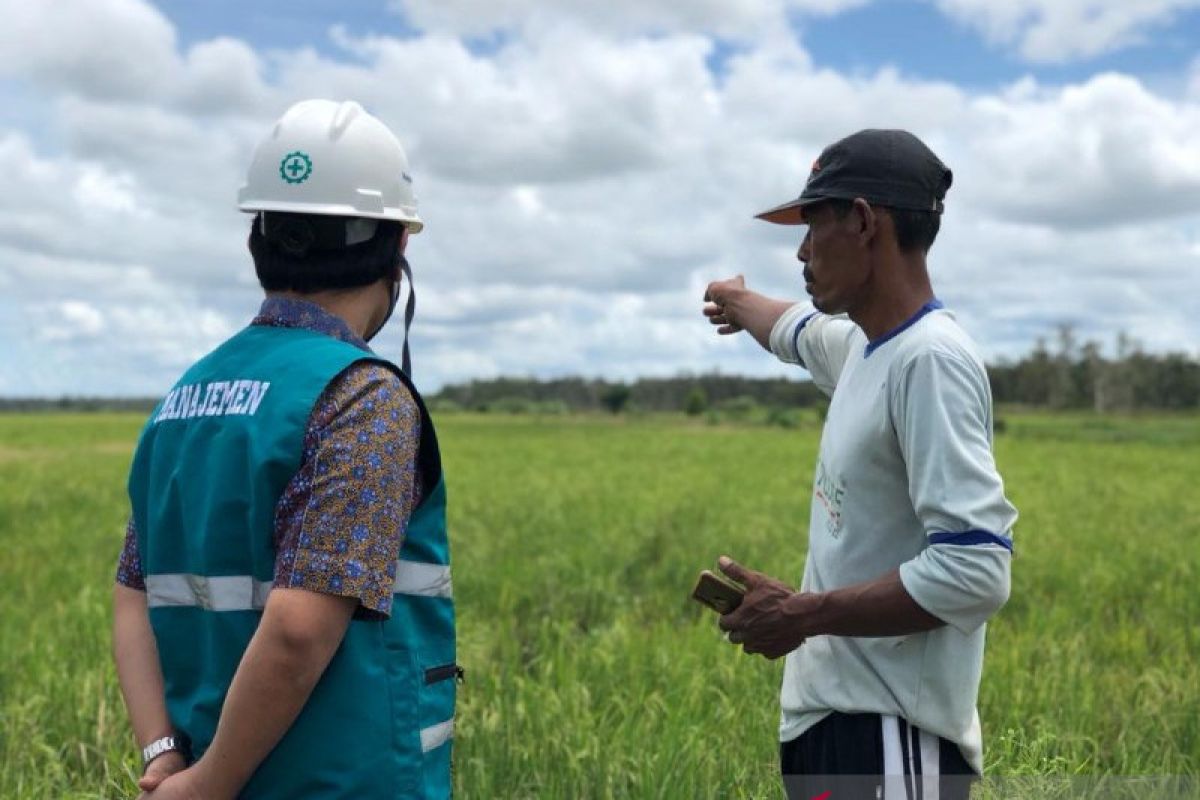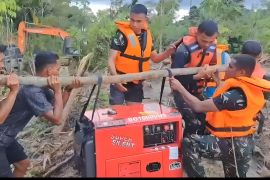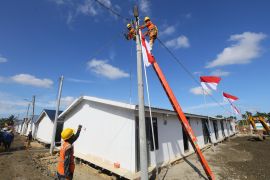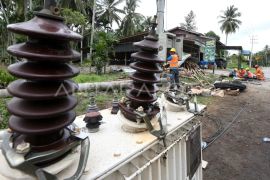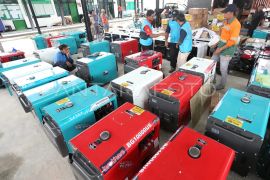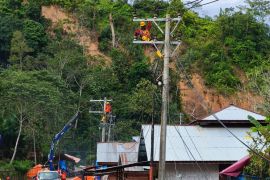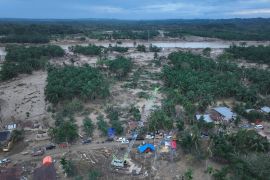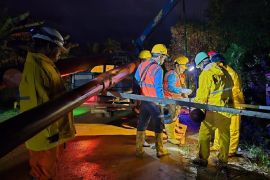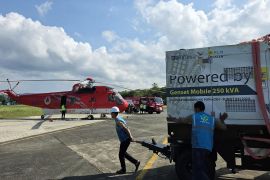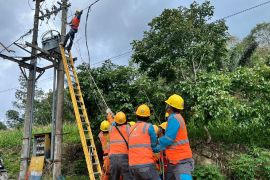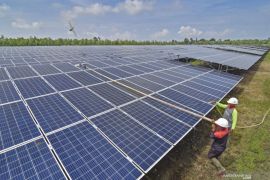In collaboration with the government of Jayapura city, Papua province, PLN inaugurated the "Nila" community-owned fish floss processing business in South Jayapura sub-district for improving the local community's economy.
Senior manager of finance, communication, and general affairs for PLN's Papua and West Papua regional main unit, Rio Widiya Nugraha, said this was a form of PLN's commitment and responsibility for supporting the community.
"Seeing the potential in Hamadi village, which is rich in fish catches, we assessed that it needs to be maximized by processing the fish (into processed products)," he said.
PLN hopes that the training would help the community to scale up production, he added. It is further hoped that the new knowledge acquired through training would stimulate innovation and help the community improve their product’s quality and boost sales, he said.
Meanwhile, the head of "Nila" group, Rosdiana, thanked PLN for providing training to the members of the group.
Production activities that had stopped earlier have resumed again with increased human resources capabilities, he observed. He expressed the hope that the group would become more productive in the future and earn more extra income.
In addition, Deputy Mayor of Jayapura, Rustan Saru, also lauded PLN and all parties who have coordinated, cooperated, and collaborated in helping the community, especially in the economic sector.
He said he hoped that the business run by the community would continue to improve both in terms of production and promotion.
Under its CSR program, PLN has also provided assistance worth Rp80 million to the Community Self-Support Agency (BKM) "Maju Bersama Hamadi" to empower the community and train them in fish processing, he noted.
Provided in collaboration with the Marine and Fisheries Office of Papua Province, the training is deemed necessary to improve the community's capacity, he said.
Not only that, PT. PLN’s Main Unit for Papua and West Papua Regions has also supported 39 micro, small, and medium enterprises (MSMEs), he pointed out.
General manager of PT. PLN’s Main Unit for Papua and West Papua Regions, Abdul Farid, said that the MSMEs are making several products including coffee, knitted bags, batik, and Papuan crowns.
Related news: Village fund to help Merauke become national food barn: minister
PLN’s agricultural electrification program
PT PLN has also continued to support efforts to increase agricultural productivity in Papua by encouraging farmers to utilize electricity through the "Electrifying Agriculture" program.
Manager of PLN’s Timika city branch, Wahyu Prihatnala, said PLN's support in the agricultural sector is expected to help boost farmers’ welfare.
Among those that have benefited from the program is the SP4 Sopoyono Farmer Group of Wonosari Jaya village, Mimika Baru sub-district, Mimika district, who have switched from diesel fuel pumps to electric pumps for irrigating fields.
One of the farmers in the group, Budi, said that the electricity provided by PLN has greatly helped farmers as electricity is much cheaper than diesel.
A diesel pump requires about five liters of fuel, which costs Rp45 thousand to Rp50 thousand per day, to irrigate fields, he said.
In contrast, electricity for operating the pumps only costs Rp14 thousand, he added.
In addition, electricity has also allowed farmers to use lights at night to keep away pests and animals that can damage crops.
According to PLN's Farid, the "Electrifying Agriculture" program is one of PLN’s efforts to increase the competitiveness of local farmers, especially in Papua.
PLN continues to strive to maximize its services to all consumers, including farming business actors, one of which is by providing reliable, easy-to-reach, and accessible electricity services, he said.
The "Electrifying Agriculture" program is a part of PLN's spirit of transformation, he said adding, the reliability and ease in accessing electricity services continue to be improved for all business actors, including the agricultural sector.
"With this program and facilities, we hope farmers’ productivity can continue to increase so that farmers can compete amid difficult conditions such as the current pandemic," Farid remarked.
Related news: Electrification for 1,123 villages in Papua, West Papua
Assistance for business actors
Aside from supporting farmers, PLN has also distributed assistance of 40 induction stoves, worth Rp100 million, to Jayapura’s Numbay Coffee Community under the PLN Peduli (PLN Cares) program.
PLN has said it hopes that business actors will make the most of the assistance.
"This is a form of our concern for MSMEs in Papua, where this assistance is a stimulus for MSMEs, especially coffee shop entrepreneurs, to grow," PLN's Nugraha said.
The increasing popularity of coffee shops in Jayapura is a sign of the growing business climate in the city, he added.
The growth of coffee shops is hoped to improve the welfare of local coffee farmers supplying Papuan coffee beans to the shops, he said.
Meanwhile, Numbay Coffee Community chairman, Roger Liem, said that the induction stoves would be distributed to 38 coffee shops operated by the community.
In addition, PLN has also helped the "Doing Deep and Wise for New Generation" (D2WNG) community to provide coffee shop equipment to youth in Yoboi village, Sentani sub-district, Jayapura district.
Not only PLN, the Papua provincial government and several other parties also contributed to providing coffee shop equipment to the Yoboi youth, company officials said.
Secretary of the D2WNG community, Dhias Suwandi, said that after providing training for two days, his community donated coffee shop equipment to the Yoboi youth.
He said he hoped that after the training, the youth would put their knowledge into practice and open a small coffee shop in Yoboi village and support the village as one of the tourist attractions of Jayapura district.
Related news: Government introduces Papua's business potential to 45 investors
Related news: Four Indonesian state firms ready for business expansion in PNG
Editor: Suharto
Copyright © ANTARA 2022
